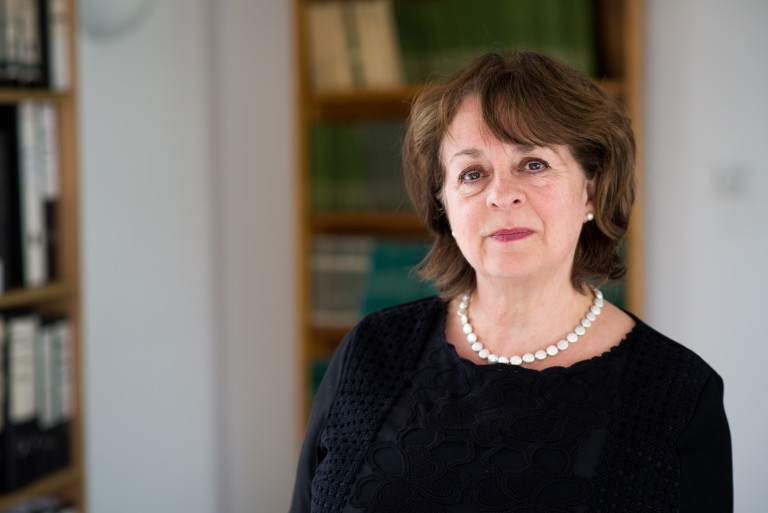Howard League blog · 9 May 2017
Healthcare in prisons

The Prisons and Probation Ombudsman has published a report into the death of Daniel Adewole, a 16-year-old boy who died at Cookham Wood prison in July 2015.
The report raised concerns about the procedures and staff responses at the prison, which only holds children. These replicated systems applied in adult prisons – for example, “a paediatric neurology appointment was cancelled simply on the grounds that Daniel and his parents were aware of the date” because this could have been a security risk. Surely a child’s parents should be with him for external medical appointments and this should be seen as a positive thing?
I think the report is odd. If my child had epilepsy and often had seizures in the night or early morning, I would make sure he slept with his door ajar so that if there were problems I could go to him. So locking a child with a serious epilepsy condition alone in a cell with untrained staff patrolling once or twice a night appears to me to be in itself a negligent thing to do. Too often the officials looking at what happens to children in prison, even if they have died, apply different standards to what would be expected for their children, for our children.
Routine and specialist hospital appointments are being cancelled when there are insufficient staff to accompany prisoners
In overcrowded and understaffed prisons, many adults and child prisoners are suffering unnecessarily and their health is deteriorating. Prisoners are locked in their cells for hours and there are not enough staff on the wings to let them out to attend essential prison healthcare appointments. Routine and specialist hospital appointments are being cancelled when there are insufficient staff to accompany prisoners. Delayed treatment and cancellations put people’s health and wellbeing at risk and in some cases, increase the likelihood of death.
No matter how good the healthcare provision in a prison, it is of no use to prisoners if medical staff are unable to reach them. A report by the Independent Monitoring Board at Pentonville prison revealed that mental health staff were delivering treatment sessions to prisoners on a landing or at a cell door. Worse still, it found that some staff were providing treatment to prisoners who were on the other side of a locked door. The IMB described this as “wholly inappropriate”.
Our lawyers receive about two calls a week on our advice line from children and young adults in prison who are having problems accessing healthcare. Howard League lawyers represented a young adult prisoner who did not have a working hearing aid for weeks and was not able to attend external healthcare appointments to be fitted with one that worked. NHS England told us that the majority of appointments were missed because staff did not or could not get prisoners across the prison.
It is essential that the whole prison environment is geared towards promoting health and wellbeing
The healthcare that prisoners receive in prison should be equivalent to the care they receive in the community. The National Institute of Clinical Excellence (NICE) has issued guidelines on the physical and mental health of prisoners, yet, all too often, the prison regime prevents prisoners from taking control of their own health.
The NICE guidelines state that healthcare staff should encourage prisoners to be physically active and give them information about a healthy diet. Yet prisoners have very little control over the poor diet they are given and many are locked in their cells for hours on end with limited access to the gym or fresh air. Given that many of those who are sent to prison are already in a poor state of health, it is essential that the whole prison environment is geared towards promoting health and wellbeing.
Last week we submitted evidence to the London Assembly Health Committee, stating: “It is not sufficient to ensure that every prisoner is able to have the occasional appointment with a mental health professional or psychiatrist if the prisoner is terrified, isolated, locked in their cell for hours on end or drug-addled”.
A prisoner’s physical and mental health should be a priority for all staff who work in prisons.
Comments
Leave a Reply
-
Join the Howard League
We are the world's oldest prison charity, bringing people together to advocate for change.
Join us and make your voice heard -
Support our work
We safeguard our independence and do not accept any funding from government.
Make a donation
A mother has commented on my blog, telling how her son has been beaten and bullied in a prison. Her story is very upsetting and her boy, who is a child, is suffering bullying by other boys whilst the prison is failing to protect or care for him. I am not posting what she has said in detail because it might identify her son. The Howard League legal team is in touch with her and is supporting her, and we are doing all we can to help her son. The awful truth is that what has been happening to this child is happening to many other children in prison. That is why we are trying to help the individual children and their families and, at the same time, trying to change the system so that children are not held in prisons that are totally unable to care for them.